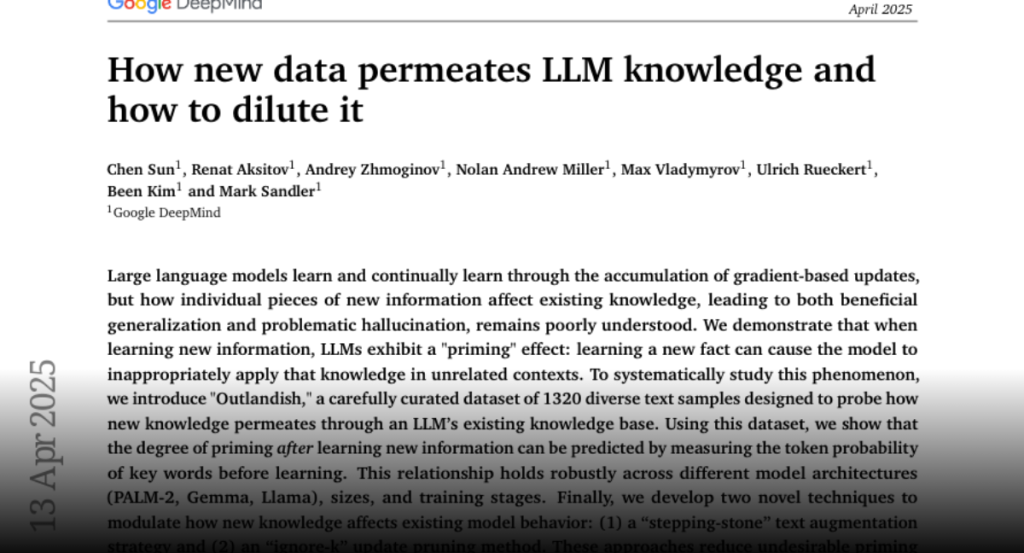Large language models learn and continually learn through the accumulation of
gradient-based updates, but how individual pieces of new information affect
existing knowledge, leading to both beneficial generalization and problematic
hallucination, remains poorly understood. We demonstrate that when learning new
information, LLMs exhibit a “priming” effect: learning a new fact can cause the
model to inappropriately apply that knowledge in unrelated contexts. To
systematically study this phenomenon, we introduce “Outlandish,” a carefully
curated dataset of 1320 diverse text samples designed to probe how new
knowledge permeates through an LLM’s existing knowledge base. Using this
dataset, we show that the degree of priming after learning new information can
be predicted by measuring the token probability of key words before learning.
This relationship holds robustly across different model architectures (PALM-2,
Gemma, Llama), sizes, and training stages. Finally, we develop two novel
techniques to modulate how new knowledge affects existing model behavior: (1) a
“stepping-stone” text augmentation strategy and (2) an “ignore-k” update
pruning method. These approaches reduce undesirable priming effects by 50-95\%
while preserving the model’s ability to learn new information. Our findings
provide both empirical insights into how LLMs learn and practical tools for
improving the specificity of knowledge insertion in language models. Further
materials: https://sunchipsster1.github.io/projects/outlandish/

